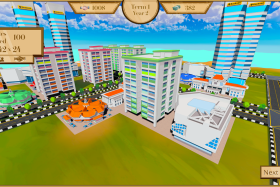'Not even water?' Ramadan questions answered
We answer some common questions asked during fasting month
"Really? Cannot eat at all?"
It's a common question by non-Muslims directed at me and my fellow fasting family and friends during Ramadan.
Muslims the world over fast for the whole month of Ramadan, the ninth month in the Islamic calendar.
In Singapore, Ramadan started yesterday.
To clear some doubts, here are answers to some of your questions with regard to Ramadan.
Why do you fast?
Fasting is one of the five pillars of Islam. Anyone who has hit puberty must fast. Those exempt are the ill or those in a situation which makes it difficult for them to complete their fast, such as strenuous work.
Fasting during the month of Ramadan is not just about abstaining from food and drink from dawn to dusk - it includes abstaining from other things such as smoking and sex.
But water is okay, right?
No, Muslims can't drink while fasting. Not water, not tea, not milk. Nothing.
Yes, in this weather, it means we can get really thirsty but the idea is to endure till about 7pm when we're able to eat and drink again during iftar, or breaking fast.
So you can eat in the evening. When does fasting start?
We generally stop eating and drinking at imsak - about 10 minutes before dawn.
We are encouraged to wake up early - around 4am to 5am in Singapore - to eat something before imsak. This meal is called sahur. For some, it's a couple of dates, for others, it can be a full meal.
What happens if you accidentally eat or drink something?
This has happened to many people I know. If it's unintentional, we keep fasting.
What happens if you feel dizzy or ill?
Only those who are well enough to fast should do so. We are permitted to break our fast if we are unwell.
Do you have to "pay back" for the days missed?
Yes, the missed days must be "paid back" before the following Ramadan.
If we are unable to repay or are unable to fast for years, we can make up for the missed days by paying fidyah, a sum of money calculated based on the number of days missed. The money is donated to the poor.
Should I refrain from eating or drinking in front of you?
That's entirely up to you!
Food smells are certainly more distracting on an empty stomach, so it would be nice if you didn't.
But dealing with temptation is a strong theme during Ramadan. Just don't tempt us on purpose.
You can always join us for iftar, or breaking of fast, which tends to be a communal activity in the evening.
It's your chance to try some more "exotic" things like dates and dendeng (thinly sliced dried meat, usually barbecued).
So, after Ramadan ends, you celebrate Hari Raya, which is the Muslim New Year, right?
Actually, Hari Raya Puasa, or Aidilfitri, means "festival of breaking of fast" in Arabic. We celebrate it in Syawal, the month after Ramadan.
Muslims are not permitted to fast on Hari Raya Puasa.
The Islamic New Year, which falls on the first day of the Islamic calendar, is called Muharram.
There's another Hari Raya on my calendar. What's the difference?
That would be Hari Raya Haji, which marks the end of the annual haj, where millions of Muslims travel to Mecca to perform the pilgrimage.
Get The New Paper on your phone with the free TNP app. Download from the Apple App Store or Google Play Store now




